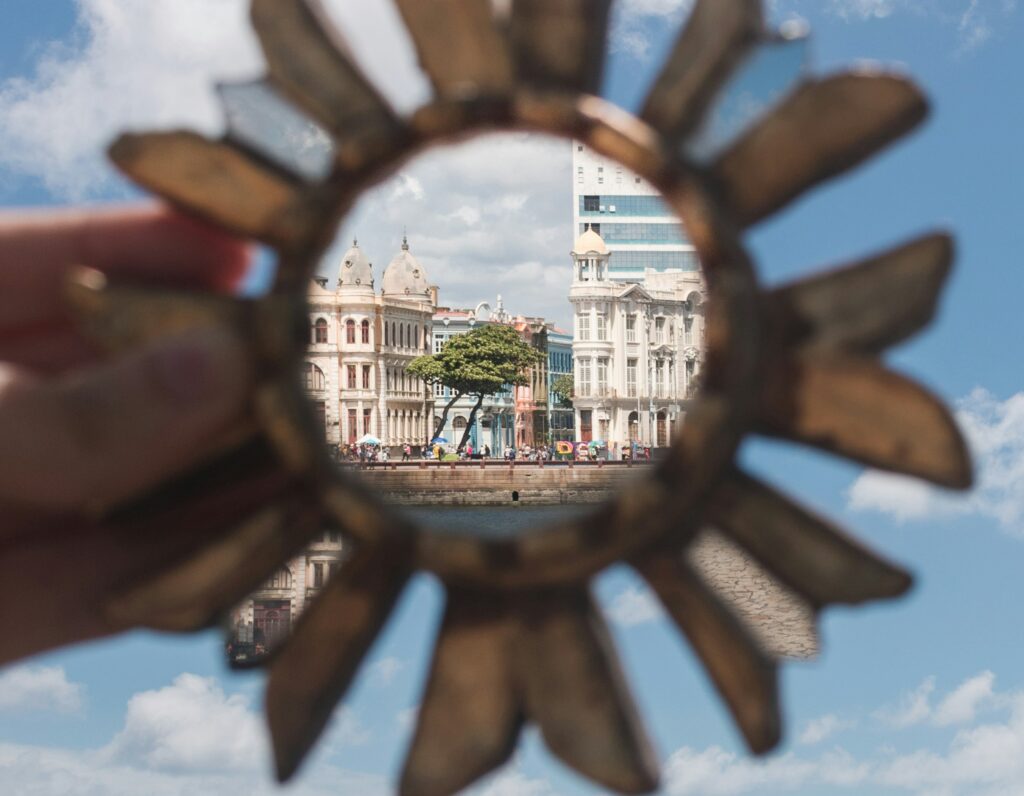Stonecoast Review
The Literary Journal of the Stonecoast MFA
Recife

By Ruth Mota
In Recife, million-strong metropolis
that points its Brazilian nose at Africa,
on an avenue named for a famous baron
so rich he owned eight sugar cane plantations,
so important his namesake links an airport
to the lapping green waves of the Atlantic -
in the very middle of that street
flanked by a pair of graviola trees
protected by thick stucco walls
that menaced with claws of jagged glass
sat my little blue house.
Mornings, wheeling the stroller,
I escaped from its filigreed bars into that equatorial heat
where bare-chested, bare-foot boys dashed past me
as I walked towards the home of the silver-bellied planes
where the shops were air-conditioned and
soldiers in polished black boots guarded them
with machine guns and lascivious smirks
to where my toddler would learn to walk
and could watch the sad-eyed manatee circle
round and round a tiny palm-lined pond.
Evenings, when the baby slept
when the cool night air descended like a prayer,
I walked away from the honking VW bugs,
the smoke of overloaded buses, walked alone
towards the pulsing sea to sing songs of moonrise on the desert
where a host of rats rose from among the jagged rocks
their beady eyes transfixed by my melancholy melody,
an entire chorus line of them, paws poised on tummies
heads cocked as if they conjured the moment
I would lead them away.
Ruth Mota currently lives in California after residing for a decade in northeast Brazil and working as an international health trainer. Now she devotes herself to writing poetry or facilitating poetry circles with groups in her community like veterans or men in jail. Her poems have been published in many online and print journals including The Atlanta Review, Gyroscope Review, Terrapin Books, Quillsedge Press, and Tulip Tree Press among others.
This poem originally appeared in Stonecoast Review Issue 21.
Photo by Nat Belfort
